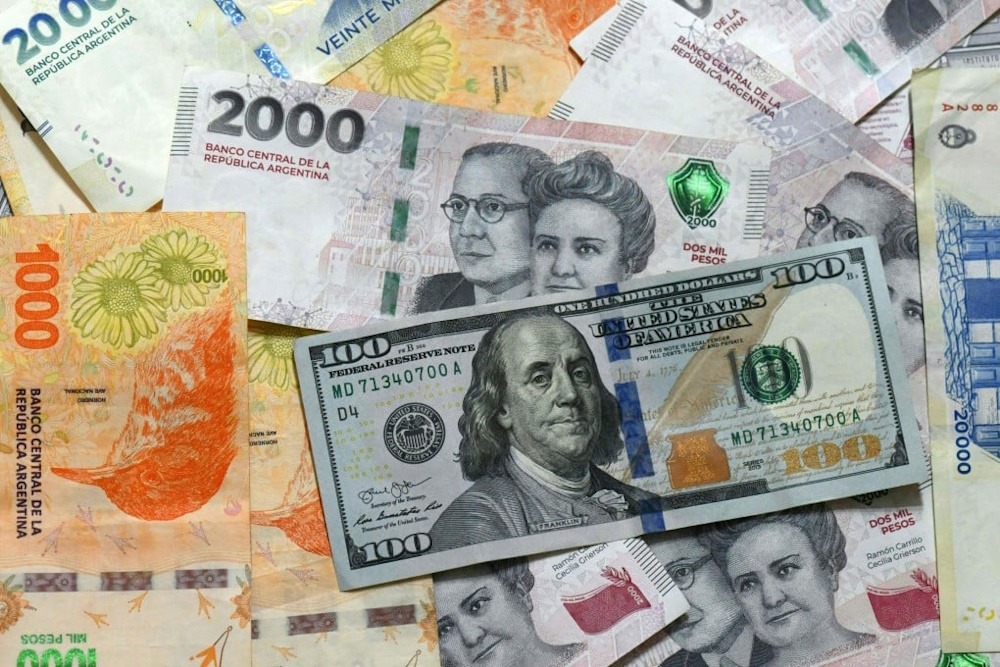Milei’s overhaul permits Argentines to transfer up to US$43,700 without any inquiries made. President Javier Milei has put forth a proposal to reform Argentina’s tax system, aiming to reduce bureaucratic obstacles and promote the utilization of previously undeclared greenbacks. The nation’s tax authority, ARCA, will cease the collection of extensive data from individuals and enterprises, encompassing transactions such as used vehicle and residential sales, as well as routine grocery purchases, effective Friday. The government is also seeking to increase the threshold at which banks are required to report consumer transactions.
Bank transfers under 50 million pesos will no longer require reporting, significantly exceeding the prior threshold of one million pesos and substantially higher than the US limit of US$10,000. Withdrawals from automated tellers below US$8,750 will also be exempt, whereas every transaction was previously recorded. Used car sellers and real estate agents will no longer be required to submit transaction details to the tax agency. Beginning June 1, the tax authority will abolish the obligation for Argentines to disclose their assets in their declarations, a change that will take effect for the 2025 tax year.
“This regime change aims to give back liberty to the people,” Economy Minister Luis Caputo stated Thursday at a press conference in the presidential palace, “and stop treating people who have had to seek refuge in informality as criminals.” The government has been promoting the announcement for weeks as a means to incentivize the utilization of dollars that are held outside Argentina’s banking system. For nearly a decade, the second-largest economy in South America has implemented currency controls, imposing restrictions on citizens who wish to purchase more than US$200 at the government-controlled exchange rate. It remains to be seen, however, whether it effectively encourages the release of greenbacks from the cautious safes of Argentines, who have harbored distrust towards the financial system for years.
“To sustain economic growth at these levels – approximately six percent – it is essential for the economy to remonetise.” “It’s almost more natural for that remonetisation to take place in dollars,” Caputo said. He estimates that approximately US$37 billion in pesos circulates within the economy, with an additional five to ten times that amount in US dollars. The government’s initiative to promote the use of the dollar forms a component of a broader strategy aimed at revitalizing sluggish consumer spending, all while maintaining low inflation rates, as measured in pesos, in the lead-up to the midterm elections scheduled for October. Caputo was accompanied by Juan Pazo, the head of the ARCA tax collection agency, Central Bank Governor Santiago Bausili, and Presidential Spokesman Manuel Adorni. “Your dollars, your choice,” Adorni stated in his introductory remarks. “What belongs to you is yours to spend and utilize as you see fit, without the necessity of constantly proving its origin.”
Milei intends to propose legislation to Congress aimed at protecting taxpayers from retroactive penalties associated with their involvement in the new tax system, according to Pazo. The measures largely embody Milei’s campaign commitments to establish what he referred to as a “competition of currencies” between dollars and pesos. Numerous Argentines perceived his communication as a signal towards dollarisation, particularly in light of the peso’s notorious history, especially after the libertarian prominently displayed dollar sign billboards featuring his image throughout the campaign. Since assuming office, Milei has retreated from some of his most ambitious commitments, such as shuttering the Central Bank, although he continues to suggest it as a long-term objective.
In the previous month, Milei obtained a US$20-billion aid package from the International Monetary Fund aimed at alleviating the majority of the capital and currency controls that were part of his inherited economic framework. While traders anticipated that the policy change would result in a peso devaluation, the currency has, contrary to expectations, strengthened within the government’s control bands. The enduring strength of the peso has rendered Argentina costly in dollar terms, resulting in the world’s second most expensive Big Mac at US$7 and the priciest cup of coffee in Latin America at US$3.50. Caputo stated that the measures were unrelated to the new agreement with the IMF and noted that they did not have an estimate for the financial impact of the change on the system.
Argentina operates as a bi-monetary economy, characterized by the fact that the majority of its citizens receive their salaries in pesos while opting to save in dollars. This phenomenon is a historical consequence of multiple crises, notably marked by the peso’s depreciation of 99 percent against the dollar over the last decade. It is typical for a bank checking account to be expressed in pesos while a savings account is maintained in U.S. dollars. Home sales are conducted in dollars and predominantly in cash, as the mortgage market is only beginning to recover under Milei.
Government officials estimate that Argentines possess more than US$200 billion in cash savings within the country, yet outside the official banking system. This wealth is often stored in tightly controlled safe deposit boxes or, more commonly, “under the mattress and God knows where,” as noted by IMF Managing Director Kristalina Georgieva last month. “If this capital is deployed effectively and yields positive results for Argentina, one can envision the potential transformation of the nation.”

